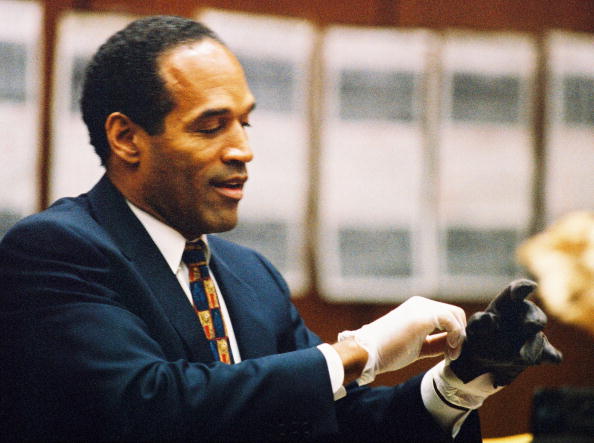Though the first half hour of the debate focused on the financial crisis and the candidates’ domestic priorities, three important issues around foreign policy were also raised during the presidential debate.
Iraq.
When Senator Obama said recently that the surge had succeeded “beyond our wildest expectations,” he conceded far too much. For complex reasons, some of which pre-date the Spring 2007 escalation in US force presence, violence in Iraq has dropped dramatically in the past eighteen months. Whether this is a temporary blip, or a permanent new reality, remains to be seen. As Senator Biden observed after the debate, the surge was intended as a means to an end: reduce the violence long enough to provide breathing space for the political process to work.
Whether the surge has accomplished that larger goal remains very much an open question. But, it is extraordinary that John McCain portrays the success of the now-ended surge as a sign of his own good judgment, ignoring his full-throated support for the invasion, and all of its false premises in the first place.
Obama’s single strongest point of the night was the moment he called McCain on this bizarre implication-noting that the war did not start in 2007, listing all of the basic facts about which McCain was dead wrong going back to 2001 and 2002, and pointing out all the catastrophic consequences of those bad judgments since 2003.
Russia.
Obama’s position on Georgia-that it should be a NATO member-is unsurprising. He has nothing to gain politically by arguing otherwise, but it’s still lame. Among the Alice-in-Wonderland premises of American foreign policy doctrine is the idea that Russia has no legitimate interest in, or concern about, the expansion of an adversarial military alliance all along its borders. Would the US ever tolerate any remotely comparable development anywhere close to its own borders? Every adult American knows the answer to that question. Ever heard of the Monroe Doctrine?
It’s especially annoying to listen to our political leaders fulminate about Russia’s incursion into Georgia when those same leaders have let pass, with scarcely any comment, the fact that Russia has, in the course of two separate military invasions since the mid-1990s, killed perhaps 100,000 people in Chechnya.
And, speaking of mass murder of civilians in remote regions, did anyone hear the word “Darfur” uttered even once during the debate? The Russian/Georgian conflict resulted in a few hundred deaths. That’s a tragedy. But, it’s not genocide. To recap: Russia’s near-genocidal incursions into Chechnya are irrelevant. So, apparently, is the genocide in Darfur. But, a border skirmish that both sides are responsible for and that lasted for about a week merits chest-thumping and ill-considered policy pronouncements during a presidential debate? Welcome to America.
More War.
John McCain has surrounded himself with foreign policy advisers that include the most fanatical elements of the neo-conservative movement. His relish for further war-in Iran and Syria, as well as Iraq, is a fact.
Obama’s position on Afghanistan is also disturbing. Few people would have denied the US the right to respond militarily in Afghanistan after 9/11. But, seven years later, our escalating presence in that country is only driving it further back into the hands of the Taliban. American bombings there repeatedly kill Afghan civilians and our increasingly provocative incursions into Pakistan threaten to de-stabilize a nuclear-armed country that has strongly and fanatically anti-American elements. A major military escalation there-as Obama proposes-could well inflame the situation further.
Furthermore, it’s no longer clear what, if any strategic value, capturing or killing Bin Laden has, as Obama repeatedly vowed to do. Al Qaeda is a diffuse network in dozens of countries, as Obama himself pointed out. And, the 9/11 plotters mostly prepared for their attack in places like Florida.
In short, the answer to terrorism is not necessarily conventional military action. Obama may know this, but, he’s still unwilling to challenge the fundamental, disturbing prerogative at the heart of American foreign policy: our unique right to project military force anywhere in the world, regardless of the consequences for innocent civilians.
Obama offers depressingly little in the way of “change” here. Is his position politically necessary? Perhaps. Is it disturbing and insidious? Certainly.
Having said all of the above, the single most relevant distinction between McCain and Obama from a foreign policy standpoint is this: John McCain’s temperament is unpredictable. He is convinced of the greatness of his own character and judgment.
Convinced of the greatness of his own character and uniqueness of his experience, McCain appears to believe that Americans should simply trust his judgment in matters of war and peace. Such acquiescence will give him free reign to be as aggressive and belligerent as he deems necessary. Will voters forget that that kind has affected our international standing, our ability to address urgent needs at home and, most fundamentally, our own national security?
His policy positions suggest that such belligerence and war mongering will keep Americans safe. His terrible ordeal in Vietnam has allowed him to use words like “honor” and “sacrifice” to mask an appetite for ceaseless war. And, it is McCain’s seeming indifference to the potentially catastrophic consequences of war, which makes President Bush by contrast look like a model of prudence and restraint.
The foreign policy aspects of round one more than any else reveal how misleading political labels are this political season. The dangerous radical this round is the Republican. And the cautious conservative is the Democratic standard-bearer.
Watch video of the debate here:
















